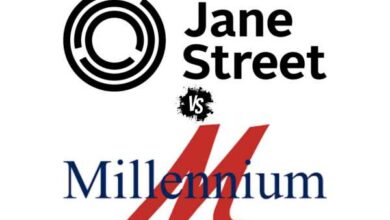Fractional ownership vs REIT: Which is a Better investment option?

Investing in real estate has always been considered a lucrative option for individuals looking to grow their wealth. According to Mordor intelligence, with a CAGR of 21.10%, the size of the India commercial real estate market is projected to be USD 40.71 billion in 2024 and USD 106.05 billion by 2029.
But traditionally, Commercial real estate investing calls for a substantial amount of money as well as a lot of managerial responsibilities.
But now that Real Estate Investment Trusts (REITs) and fractional ownership have become popular, investors have more affordable ways to invest in commercial real estate India.
Overview of Real Estate Investment Trusts (REITs)

Real Estate Investment Trusts, or REITs for short, are investment vehicles that pool the capital of several investors to make profitable real estate investments, particularly in commercial real estate (CRE).
The greatest option for individuals who would rather have an alternative to investing in real estate without owning a property is a REIT, which is similar to mutual funds. The entire return on investment (ROI) is derived from the rental income of the properties that are purchased and leased to businesses. The returns can range from 8% to 10% on average.
Benefits of REITs
Some advantages of investing in REITs include:
- Ease of entry and diversification: REITs allow retail investors to participate in real estate investments without the need for significant capital, providing them access to a diversified portfolio of properties across different sectors.
- Professional management and expertise: REITs are managed by experienced professionals who handle property acquisition, management, and other operational aspects, relieving investors from the burden of day-to-day responsibilities.
- Potential for regular income through dividends: REITs are legally mandated to distribute a significant portion of their taxable income to shareholders in the form of dividends, providing potential steady income to investors.
Considerations when investing in REITs
There are certain risks and considerations when investing in REITs, including:
- Market volatility and fluctuating returns: Like other investment vehicles, the value of REITs can be subject to market fluctuations, making returns potentially volatile.
- Lack of control over investment decisions: Investors have limited influence over specific property decisions made by the REIT management.
- Liquidity risk: The liquidity of REITs can vary depending on market conditions and investor demand. Selling REIT shares may not always be as easy or expedient as selling other forms of investments.
- Dependency on overall real estate market conditions: The performance of REITs can be influenced by the overall real estate market. Economic downturns or changes in industry trends can impact REIT returns.
Overview of Fractional Ownership Real Estate
The dynamic concept of fractional ownership allows several investors to collectively own a portion of a valuable asset, usually a commercial space or a high-end Grade A property.
Its ability to democratise property investment by enabling investors to own a portion of commercial real estate assets, that was previously available to only HNIs, without bearing the entire financial burden is what makes it unique. This trend, which is already a worldwide success story, is picking up steam in India and has a lot of potential for people wishing to get into the commercial real estate industry.
Reports suggest that the fractional ownership market in India jumped from Rs 1,500 crore in 2019 to Rs 4,000 crore in 2023.
Source: TruBoard Partners
Alternative investment platforms, for example, Assetmonk, offers a fractional ownership model where investments are secured and starts as low as 25 lakhs.
Benefits of Fractional ownership
● Lower Entry Barriers: One of fractional ownership’s key benefits is that it lowers entry barriers. Commercial real estate, earlier, was accessible to only !% of the population due to its high upfront investment costs. A wider range of retail investors can access the real estate market thanks to fractional ownership, which allows investors to enter with a smaller financial commitment.
- Access to prime commercial properties: Fractional ownership real estate allows you to access prime commercial properties that would otherwise be out of reach for individual investors. Now, You can own a share of high-value assets that were earlier inaccessible, and enjoy the rental income and capital appreciation from them.
- Diversification: Fractional ownership real estate enables you to diversify your investment portfolio by holding shares in different types and locations of properties and allowing you to diversify your risk across multiple assets and markets, and increase potential for consistent returns.
- Reduced exposure to risk: Fractional ownership real estate reduces your exposure to risk as any potential losses or maintenance costs are shared among the co-owners without the hassle of managing the property, as the fractional ownership platform takes care of it for you.
Fractional ownership vs REIT: Which is Better?
Here is a comparison table highlighting some key factors when considering fractional ownership and REIT investments:
| Fractional Ownership | REIT | |
| Initial Investment | Lower threshold, can invest in high-value properties with a smaller capital amount | Varies, depends on the price per share |
| Diversification | Can diversify investments across different properties | Offers exposure to a diversified portfolio of properties |
| Control | More control over property decisions | Limited control, decisions made by professional management |
| Liquidity | Less liquid, selling shares may require finding buyers or waiting for predetermined exit period | Highly liquid due to shares traded on stock exchanges |
| Potential Returns | Offers potential for higher returns if property appreciates or generates substantial rental income | Steady income potential through dividends, value of shares subject to market fluctuations |
| Management | Investors may have a say in property management decisions | Professional management handles property acquisition, leasing, and management |
| Tax Implications | Depends on jurisdiction, may have tax benefits or consequences | Dividends may be taxable, potential tax consequences on REIT liquidation or sale |
| Accessibility | May have eligibility requirements or accreditation criteria | Generally accessible to a broader range of investors |
Finally, The choice between fractional ownership and REITs as investment options ultimately depends on individual preferences, financial goals, and risk tolerance.
It’s important to conduct thorough research and seek professional advice to align your investment choices with your financial goals and risk tolerance.
Assetmonk: Your Entryway to Fractional Ownership Real estate

Assetmonk is the fastest-growing alternative investment platform in India. It focuses on well-structured, premium deals with exceptional returns, backed by one of the most lucrative asset classes—real estate—that was previously exclusive to the top 1% of the population.
Fractional ownership allows non-HNIs to access and invest in high-value real estate assets, which they may not have been able to do otherwise and also diversifies your investment portfolios.
Starting at just 25 lakhs, Assetmonk provides a fractional ownership model with secured investments. With Assetmonk’s “The Landing” offering, you can now invest in India’s first-ever co-living project at GMR Hyderabad International Airport.
Bottom Line
Fractional ownership offers the opportunity to invest in high-value properties with a lower initial investment, providing potential for higher returns and more control over property decisions. On the other hand, REITs offer exposure to a diversified portfolio of properties, professional management, and high liquidity.
It is crucial to carefully evaluate the advantages and disadvantages of both options, considering factors such as investment requirements, potential returns, control, liquidity, and tax implications. By aligning your investment choices with your specific goals and risk tolerance, you can make an informed decision that best suits your individual circumstances.
Assetmonk, an alternate investment platform, is an excellent option if you’re looking for a way to earn passive income while diversifying your portfolio. The fractional ownership options offered by Assetmonk provide long-term retail investors wishing to increase their exposure to the CRE market with a high potential earning yield of 14 to 21% annually. Start investing today!









